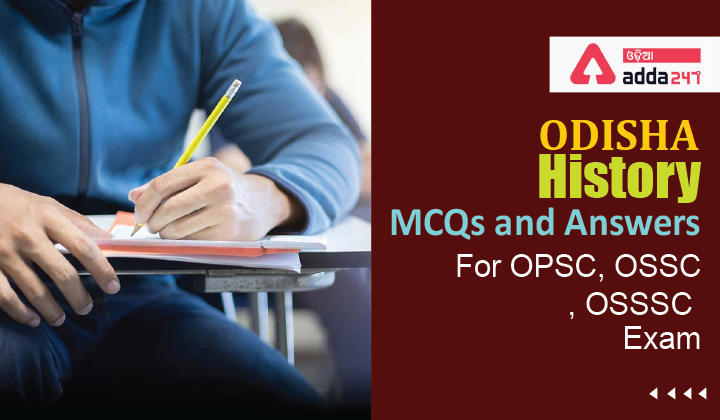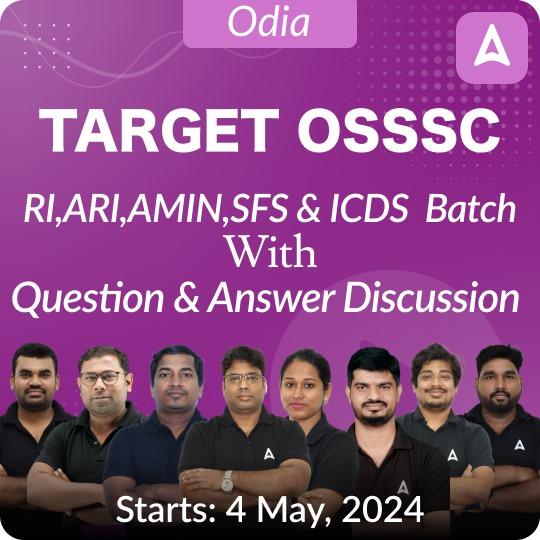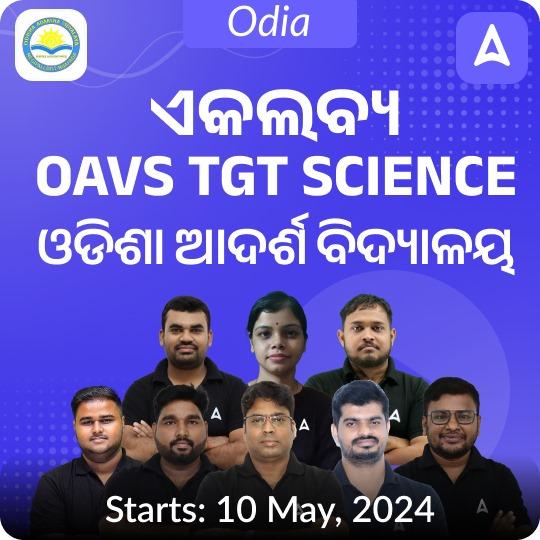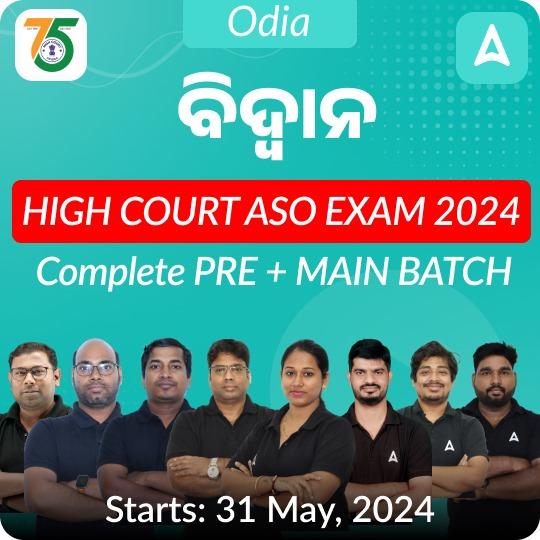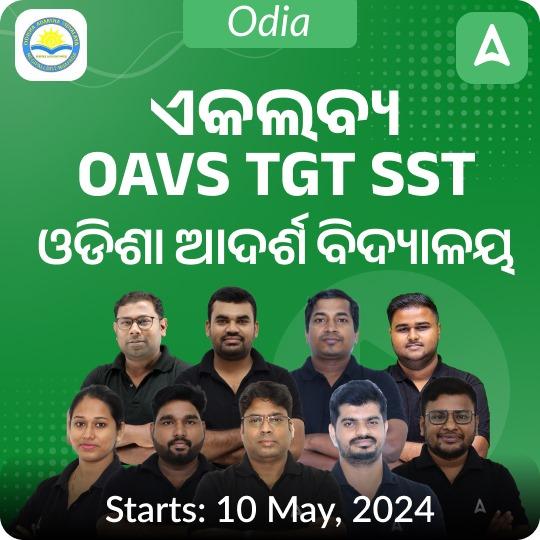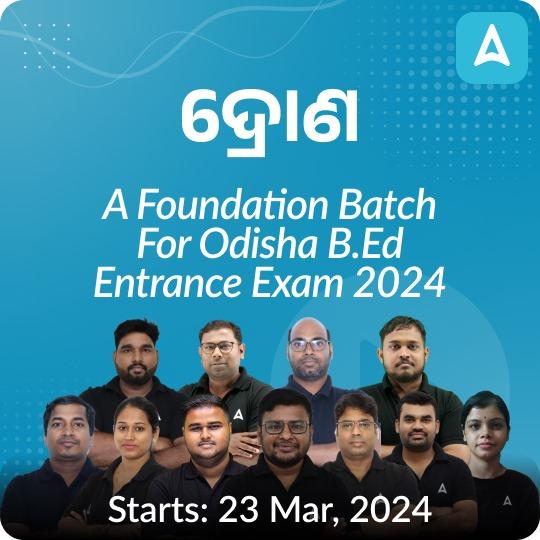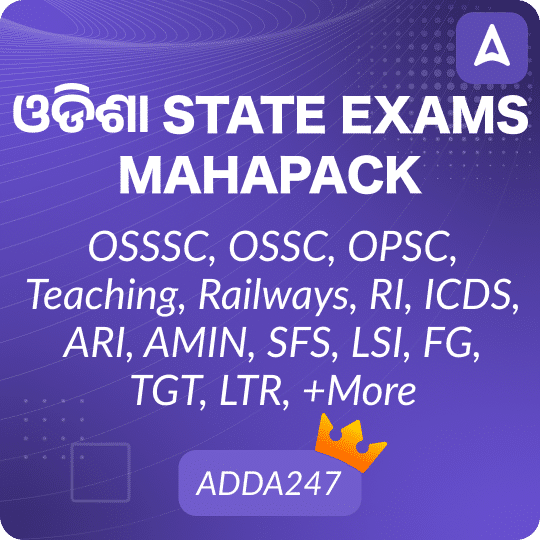History MCQs and Answers: History MCQs are very important for OPSC, OSSC, OSSSC & Other State Exams. Aspirants who are willing to apply for the various Government exams 2022 must go through the topics of History for competitive exams, as History is a key part of the syllabus.
History MCQs
Q1. Where is Muslim mosque situated where a hair of pagamber Mohammad Saheb has been preserved?
(a) Ajmer
(b) Ahmedabad
(c) Srinagar
(d) Mecca
Q2. The Mughal painting reaches its zenith during the reign of:
(a) Akbar
(b) Jahangir
(c) Shahjahan
(d) Aurangzeb
Q3. In the Maratha Empire the Prime Minister in the council of ministers was called?
(a) Peshwa
(b) Sachiv
(c) Mantri
(d) Samanta
Q4. The battle that led to the foundation of Muslim power in India was
(a) The first battle of Tarain
(b) The second battle of Tarain
(c) The first battle of Panipat
(d) The second battle of Panipat
Q5. The famous Kohinoor diamond was produced from one of the mines in
(a) Orissa
(b) Chhota Nagpur
(c) Bijapur
(d) Golconda
Q6. Which one of the following Mughal buildings is said to possess the unique feature of being exactly equal in length and breadth?
(a) Agra Fort
(b) Red Fort
(c) Taj Mahal
(d) BulandDarwaza
Q7. The Khilji Sultans of Delhi were
(a) Mongols
(b) Afghans
(c) Turks
(d) A Jat tribe
Q8. The QutubMinar was completed by the famous ruler
(a) Qutub-ud-din Aibak
(b) Iltutmish
(c) Babur
(d) AlauddinKhilji
Q9. During the rule of______ Ibn Batuta visited India.
(a) Iltutmish
(b) Ala-ud-din Khalji
(c) Muhammad bin Tughluq
(d) Balban
Q10. Where did Babar die?
(a) Agra
(b) Kabul
(c) Lahore
(d) Delhi
Q11. The Permanent settlement introduced by Cornwallis is in Bengal is known as
(a) Roytwari System
(b) Mahalwari System
(c) Zamindari System
(d) Iqtadari System
Q12. Who was the first Chief Justice of Supreme Court of Calcutta?
(a) Hyde
(b) Elijah Impey
(c) Lemaistre
(d) Monson
Q13. The Charter Act of 1793 Renewed the Company’s monopoly for____________ years.
(a) 20 years
(b) 10 years
(c) 30 years
(d) 15 years
Q14. Who did not find a place in the Legislative Council as per the Act of 1853?
(a) The Governor-General
(b) Additional Members
(c) The Commander-in-Chief
(d) The Lieutenant Governor
Q15. The Governor-General was given power to issue ordinances by the act of
(a) 1858
(b) 1861
(c) 1860
(d) 1871

Solutions
S1.Ans.(c)
Sol.TheHazratbalShrine, is a Muslim shrine in Hazratbal, Srinagar, Jammu & Kashmir. It contains a relic, the Moi-e-Muqqadas, believed by many Muslims of Kashmir to be a hair of prophet Muhammad.
S2.Ans.(b)
Sol.Jahangir had a very discriminating eye and Mughal painting reached its climax of glory during his reign.
Ans.(a)
S3.Ans(a)
Sol.APeshwa was the equivalent of a modern Prime Minister in the Maratha Empire.
S4.Ans.(b)
Sol.The Second Battle of Tarian (Taraori) was again fought between Ghurid army of Mohammed Ghori and Rajput army of Prithviraj Chauhan. The battle took place in 1192 A.D near Tarain. In this battle, Prithviraj Chauhan was defeated by Mohammed Ghori.
S5.Ans.(d)
Sol.The famous Koh-i-Noor (“mountain of light” in Persian) diamond weights 105.60 cts and is considered one of the 5 priciest diamonds in the world was mined in Golconda, India.
S6.Ans.(c)
Sol.The Taj Mahal is an ivory-white marble mausoleum on the south bank of the Yamuna river in the Indian city of Agra. It was commissioned in 1632 by the Mughal emperor, Shah Jahan, to house the tomb of his favourite wife, Mumtaz Mahal.
S7.Ans.(c)
Sol.TheKhiljis were one of the clans of the Turks. The rule of Khilji Dynasty has reached the power and influence of Delhi Sultanate to its peak. The Khilji’s were marked by wars and internal conflicts.
S8.Ans.(b)
Sol.The construction of the QutubMinar was started by Qitub-ud-Din Aibak, but he only constructed the basement. The construction of the tower was later taken over by his successor Iltutmish who constructed three more stories.
S9.Ans.(c)
Sol.After his third pilgrimage to Mecca, Ibn Battuta decided to seek employment with the Muslim Sultan of Delhi, Muhammad bin Tughluq. In the autumn of 1330 (or 1332), he set off for the Seljuk controlled territory of Anatolia with the intention of taking an overland route to India.
S10.Ans.(a)
Sol.Babur died in 1530 and was succeeded by Humayun. According to Babur’s wishes, he was buried in Bagh-e-Babur in Kabul, Afghanistan
S11.Ans.(c)
Sol. Permanent settlement was introduced in 1793 by Lord Cornwallis and covered around one fifth of British territory in India, including Bengal, Bihar, Orissa, parts of Northern Karnataka, Varanasi and some other areas. There is a middlemen in this system who were the Zamindars, who need to pay a fixed amount of land revenue on a fixed date every year.It is also called Zamindari System.
S12.Ans.(b)
Sol. Sir Elijah Impey was a British judge, the first chief justice of the Supreme Court of Judicature at Fort William in Bengal.
S13.Ans.(a)
Sol.Every charter act renwed company licence for 20 yrs.
S14.Ans.(d)
Sol. Charter Act of 1853 marks the expansion of the Council of the Governor General for legislative purposes. The council of legislative purposes which had 6 members now was expanded to 12 members.The member are Governor General , commander in Chief, four members of the Governor General’s Council etc.
S15.Ans.(b)
Sol. The Indian Councils Act 1861 was passed by British Parliament in 1861 to make substantial changes in the composition of the Governor General’s council for executive & legislative purposes. The most significant feature of this Act was the association of Indians with the legislation work.
General Science MCQs and Answers For OPSC, OSSC, OSSSC, BANKING Exam
Polity MCQs and Answers For OPSC, OSSC, OSSSC, BANKING Exam
Odisha Geography MCQs and Answers For OPSC, OSSC, OSSSC Exam
Odisha History MCQs and Answers For OPSC, OSSC, OSSSC Exam
Reasoning MCQs and Answers For OPSC, OSSC, OSSSC, BANKING Exam
English MCQs and Answers For OPSC, OSSC, OSSSC, BANKING Exam

